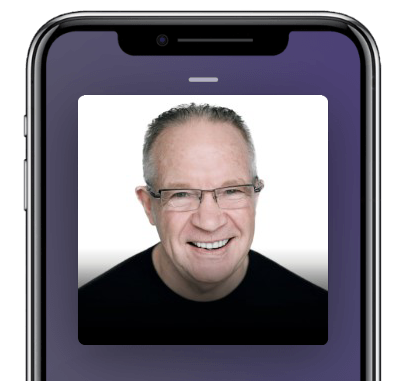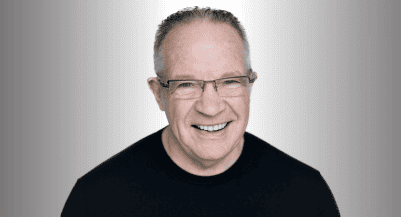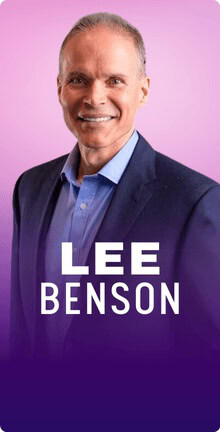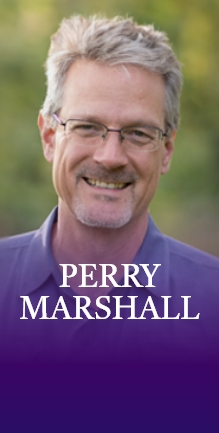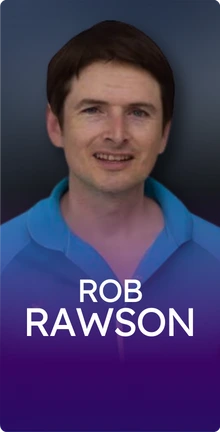In this Episode
- [01:57]Stephan welcomes Dan Sullivan, and they begin discussing the US pulling back manufacturing to focus on the domestic economy in response to global challenges.
- [09:27]Dan explores adapting to technological advancements and co-hosting a podcast on Exponential Wisdom.
- [12:55]Dan shares his views on simulation theory and its interpretations. He also reflects on geopolitical changes post-World War II and their connection to technological advances.
- [19:12]Dan introduces the concept of unique ability and the various thinking tools created by Strategic Coach.
- [28:17]Stephan and Dan delve deeper into synchronicity, unique abilities, and universal intelligence, including Carl Jung’s scarab beetle story.
- [40:08]Dan discusses the correlation between procrastination and addiction and the importance of truth in personal and professional growth.
- [52:25]Dan reveals his favorite type of projects.
- [59:50]Dan provides information on how to connect with him and learn more.
Dan, it’s so great to have you on the show.
Stephan, thank you very much. It will now be 50 years since I’ve been coaching. I started in August of 1974, so it’s been 50 years.
How does it feel?
Well, it feels good. It’s quite a passage of time, and I think it’s fairly significant—the reason why I do what I do. I was a writer for a very big ad agency in Canadian terms. It was part of BBDO, one of the big ten global systems advertising. But I’ve always been quite a voracious reader of things that don’t have any immediate use to me. I just started noticing around 73 74 that a new word, which was microchip, hadn’t really entered into the language. I dug a little bit deeper, a little harder.
In those days, we didn’t have search engines, and I went back and got in touch with the stuff being done. Fairchild was really one of the first big companies that was doing integrated circuits. Gordon Moore, who, of course, became very famous for not so much a prediction, it was actually a question that he just noticed in three stages of growth of integrated circuits that the computing power was doubling each time you did it, and the cost of computing actually was going in half. So you got a sort of four times payoff every time you did it. It just intrigued me.
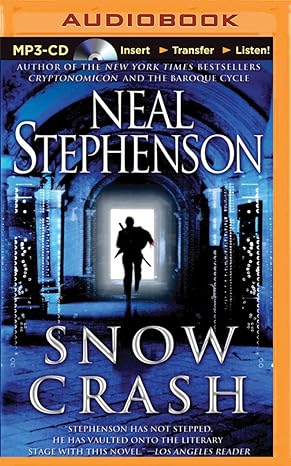
Then, some great articles were written. New York Times had a wonderful science and technology writer in the early 1970s, and he was projecting what this new invention would do to all existing inventions. His predictions were largely accurate, but the reason why I’m telling you this about the microchip is that one of the predictions he made is that entrepreneurism was going to be much more central to life than it had been before 1974 and that these marginal creatures, entrepreneurs who were sort of on the periphery of large corporate life and everything else, were going to become much more in the center of things.
The reason is that they would be quicker to use micro technology than the big corporations, and the speed of innovation would increase, making bureaucratic decision-makers very uncomfortable. They wouldn’t be able to keep up with the speed of innovation. Looking at the last 50 years, that’s largely been true.
One of my favorite authors is Neal Stephenson, he wrote Snow Crash. He also wrote The Diamond Age about the coming future where brands rule the world, and then post molecular nanotechnology, where nanomachines will be able to replicate themselves, and how different of a world we’ll live in. It’s such a short time away. Are you familiar with either of those books or that author?
Yes, a long time ago. I read them. It was still in the realm when science fiction was interesting, and then science became more interesting than fiction. I grew up in the fifties, sixties and seventies, and science fiction ruled the world in those days because you didn’t have actual science. But then science and technology really outpaced the writing of science fiction plots and themes. It seems like reality is what was fictional is becoming reality.
What’s that quote about science? “Any sufficiently advanced technology is indistinguishable from magic.”
One aspect is that speed is magic. Think of motion pictures in the old days. They’re not that way anymore. But when motion pictures first came, there were just a lot of them, and they were going very fast. I think that the element of technology that is confusing for a lot of people is that the great trump card that technology has is speed. Speed fools humans into thinking that things that are made up are actually real.
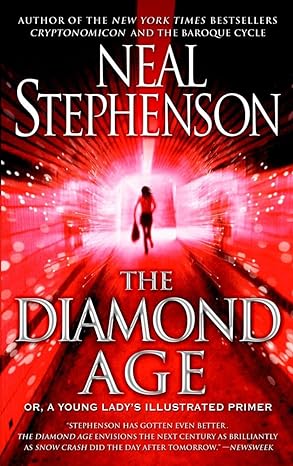
What would be an example?
There’s sort of a joke in your phone that if you took all the technologies that have been packed into the phone probably since 2008 when the iPhone came out, if you actually had to put a price tag on all the different technologies that are now in this very little object that you can put in your pocket, it would be maybe like $2 trillion, but you have availability to it, and you’re accessing an enormous speed. These are things that used to take weeks, months, or not at all to find out about. You’re sitting there and say, “Come on.”
Every time things speed up, it probably wows you for the first 24 hours. And then you’re saying, “Can’t you do this any faster?” I think there’s a drug-like quality that the first hit of the drug you get on day one is amazing, but by day five, you’re saying, “Is there something stronger? Isn’t there something more powerful?” It’s very addictive. I have to say that I’m not really subject to that because I tend to keep very smart humans between me and the technology.
I like to know what technology does, but I don’t have any overriding need to be the master of technology. There are people I work with and know who do this a lot, and their mastery is much greater than mine, so I take advantage of theirs. I just put my emphasis on being a good prompter or a good asker of questions. Well, it does. Does it do this?
Well, that’s your concept of Who Not How—you get the right views in the room. Do you have positive expectations about the future because things are rapidly changing?
I’m very positive. First of all, I’m 80, and I’ve gone through a lot of changes in my life, which have turned out to be positive. I’m a radio guy. I didn’t see television until I was nine years old. I remember the changeover when radio was no longer interesting, then television, the various changes that television has gone through and everything else. I’m used to the change, and I’m not a cutting-edge user of new technology, but I’m sufficiently close to interesting people, and I have many of them as entrepreneurs who are clients of Strategic Coach.
I just stay in touch to see how they’re thinking about it. What’s the cost-benefit of what you’re doing? You’re investing a lot in it. Are you getting a return on it? I know it’s always going to be changing. I know there’s always going to be new technology. I have a podcast series with Peter Diamandis. It’s called Exponential Wisdom. I said, “Peter, you’re going to supply all the exponentials, and I’m going to provide all the wisdom.”
He said, “Can you imagine when this artificial intelligence is as smart as the singularity moment when artificial intelligence is going? Can you imagine what that day is going to be like, Dan?” I said, “Yeah, I can.” He said, “What’s it going to be like?” I said, “It’ll feel just like another day. It’ll be normal.” Humans normalize change. We don’t like things that aren’t normal. So, if something new happens, we normalize it. We just said, “Here’s a way of looking at it. It’s not too much different from what we were doing before.” There’s probably a real division in society that thinks these new technologies are changing everything about human existence.
We don’t like unusual things, so if something new happens, we normalize it.
But they haven’t spent much time actually studying how humans have progressed over thousands of years. There’s an enormous intelligence that’s been created more in the Western world simply because it takes the form of a conversation. There are classes in universities, and there are political circles today that refer to Aristotle, Plato, and everything like that. We have been comfortable with the thinking of people for over a couple of thousand years. That’s one of the ways that we normalize things. I kind of get what Plato was after here as if he were in the next room.
Well, the concept I love most about Plato is the cave. Do you know about Plato’s cave? Maybe explain it to our listeners.
Plato said that what we think is reality is just a shadow on the wall because we’re in a cave, and the sunlight comes into the cave and casts shadows. We think those shadows are reality. The goal of the lover of truth is to realize that you’re in the cave and should make your way toward the entrance to be out in the sunshine itself. That’s reality. It’s a cool selling line when you think about it.
You don’t buy it?
No, I don’t. There’s a whole history of Plato and who he was. He’s famous because of Socrates. But we don’t actually know what Socrates said because it’s all through Plato’s voice. Socrates actually changes. I’ve read all of the dialogues. I went to a college where you just read philosophy, and we read all those things. I think that he was an aristocrat who landed in Athens and was very afraid of all the changes that were being brought in because Athens was a trading city.
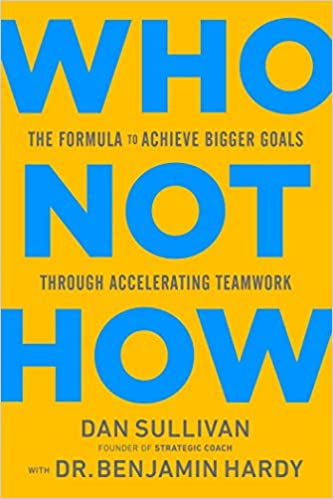
All these ideas were coming into the marketplace in Athens. I think he wanted to say, “Well, regardless of all the changes, there’s a superior form of thinking and a superior form of being.” So, he had his own coaching program.
Yes, he did. This concept of living in an illusion or simulation sounds like you’re not buying it, but have you had any?
I’m not buying it in Plato’s words, nor in Elon Musk’s, that we’re all living in the matrix.
He actually said that there is a one-in-a-billion chance that we’re living in base reality. Most likely, of course, is that we’re living.
My advice for Elon is to speak for yourself. I’ve got a pretty good grasp of reality, and so far, I’ve got fans who take how I think about things seriously. The program is 35 years old, so it grows every year.
It’s fabulous. I took it a few years ago.
We’ve got some solid concepts that people find very useful. It keeps them more focused as individuals. They become happily productive. I would use the term that they’re happy, productive, and have a more balanced life than they had before being in the coaching program. But they’re all entrepreneurs. I don’t coach anyone except fairly successful entrepreneurs. But I think we’re just in a major shift. One is obviously technological, but I think the other is geopolitics because you and I were born.
I was born before the deal that the United States had with the world at the end of the Second World War. The US economy was half the global economy and 45 at the end of the war. Americans really don’t like seeing taxpayers coming back in coffins. There’s a dislike of America being involved overseas with conflicts they don’t comprehend. They could see immediately. In 44, a year before the war ended, they knew there would be a major standoff with the Soviet Union. They pulled off one of the greatest geopolitical tricks in human history.
They had a very famous conference in New Hampshire called Bretton Woods, and they established a three—or four-part agreement on how the world was going to be reorganized after 1945. One was that the dollar was going to be the reserve currency, which it remains today. The other was that the US would lend any amount of money that you wanted to rebuild your economy.
There’s a superior form of thinking and a superior form of being.
You could make products, ship them safely across seas because the US Navy would provide a guarantee of shipping lanes, and sell your products into the US without tariffs. And all those were really, really new things on the global scene. It lasted, but it was only for one reason. It was to prevent the further expansion of the Soviet Union. They created an iron curtain, and America created a prosperity curtain to blunt the influence of the Soviet Union.
I remember when the Soviet Union collapsed, it started with the wall coming down. One in 1989 and then 1992. Actually, the Soviet Union disbanded. As the Soviet Union, it just went back to being Russia. It was the greatest human event that was not reported or commented on. They’re just like, “Oh, did you see the Soviet Union collapse? How’d the hurricanes do last night?” It was really interesting because it was such a good deal, and people suspected that the Americans would stop providing everybody with the deal, that nobody brought it up, none of the foreign leaders.
It was just the sweetest deal in the world. The US didn’t really do it for economic reasons. It was for security reasons. Because the US even today, I think the percentage of the GDP that it’s involved in foreign trade is about 12% of the US. Americans just make stuff for Americans, and they have the biggest consumer economy in the world. A lot of this is intertwined with technological breakthroughs. This is not original thinking on my part.
There’s a great thinker named Peter Zeihan who’s written four amazing books on this subject. He said that basically, at a certain point, the US, once the Soviet Union wasn’t there, they just decided, “We’re pulling back. We’re going to bring our manufacturing back to the US. We’re going to have as much that is crucial to the American economy and that we’re going to bring it back.” They’ve been doing this now since ‘92.
Procrastination might stem from the idea that you're not suited to achieve a particular goal, which is why finding the right 'who' is essential. Share on XBut the beauty of the global economy and system is falling apart. Supply chains and everything else are slowing down. The US has decided, pretty much top to bottom, that China is the next big problem, and we’re not going to give them such a great advantage in the US marketplace.
The US was an ADD country. Every day, millions of things are going on, but every once in a while, an issue gets everybody’s attention, and then they hyper-focus. I’m added, so I kind of know how it does. It’s an amazing country. But the reason I’m saying this is that everybody thinks that technology changes things. But politics changes things, international trade changes things, and international security changes things. Technology is a major player at the table, but it’s not the only player at the table.
When you said you’re ADD, you’re actually. You’ve gotten tested, and you’ve gotten that diagnosis.
I went to the Amen Clinics. You know Dr. Daniel Amen?
Right. He’s been a guest on the show.

He saw my scans and said, “I’ve heard that you’re sparked. I don’t know how you’ve done it with such a sh*tty brain.”
I don’t know that he said exactly those words.
No, he actually did say those words. But a lot of what I’ve created as a strategic coach and what our team has created is a series of thinking tools, Stephan. If you think of a Strategic Coach, it’s this expanding universe of thinking tools with a central concept called unique ability. An individual has a unique ability, and it’s factory equipment. You’re born with this, but the world around you wasn’t invented to support your unique ability.
You have to spend your life negotiating with the world. So what you do well, what you love doing, what other people find valuable, you got to negotiate with the world. You have to figure out a business model for what you do for a living, and that’s what a strategic coach is.
You have to figure out a business model for what you do for a living, and that’s what a strategic coach is.
Here’s a good way to think about this situation: Here’s a series of thinking tools we’re up to after 35 years. The patent bureau in Washington likes these, so we’ve gotten 30 patents in the last year. I’m influenced by my philosophical readings, Plato, the Greeks, and everything else, so I’m a modern-day philosopher.
Is that your unique ability?
I think enabling others to think about their thinking is my unique ability. And I get great joy out of that. When you’re in the workshop, Stephan and I ask questions, and you’re sitting there, and I’m watching you writing. And then we have frequent breakout groups where you talk about what you’re writing, and I never know what you wrote down, but I can tell by your excitement and by your energy that your thinking was good for you. My joy is that you were thinking about it one way. It wasn’t working for you. I’ve provided a new thinking tool: if you use it now, you’re very excited about what’s happening, and that’s my reward. That’s very philosophical. I’m not selling meat patties.
Well, it’s very meta. Thinking about one’s thinking is like being aware of one’s awareness.
That’s the thing that is not being approached. I remember Ray Kurzweil. I was at a conference a dozen years ago, and he was making his usual singularity prediction. When all the technologies come together, they’ll be much more intelligent than human intelligence. I went up to him at the break and said, “When you’re talking about human intelligence, are you talking about consciousness?” He says, “Nobody knows what consciousness is.”
I said, “Well, I think it has something to do with human thinking. I think it has something to do with human intelligence.” This has been a pet project of mine, and it’s much easier to do today because of search engines and AI. There has been no progress made in the last 40 years in understanding human consciousness. There’s zero. I think people in that scientific area, which involves psychology and neuroscience and everything else, have made absolutely no headway in the last 40 years; they don’t know what consciousness is. But we wouldn’t be having this podcast if you weren’t conscious, and I wasn’t conscious.
Synchronicity is more explainable than it’s a mysterious thing.
Then there’s the collective unconscious, too, where we’re connected, I think. You’re a fan of Carl Jung, right?
Well, certainly much more than Sigmund Freud. Carl Jung was a pleasure to read because he was a very benevolent spirit. He was interested in people’s sense of well-being and how they were living their lives. I’m that way. I truly do want the best for whoever I’m working with.
Carl Jung came up with not just the collective unconscious as a concept of synchronicity. How do you see synchronicity showing up in your life?
You know it when you’ve heard a good joke. I was actually not the word that you’re using, but I was thinking of this. In really good theatrical performances or really good musical performances, it’s quite amazing what 1000 people in an audience will get into the same dimension. It’s different from listening to music alone or watching a theatrical performance. There’s an added. I was in London about a month ago, and we went to see Barry Manilow, and he’s been at it for a long time. He’s 81, a year older than me, and he’s been on stage for 46 years. He wasn’t always a singer.
He was a songwriter. Then he became very famous for his songs for other people. At a certain point, he’s got a good voice, and he’s a good musician, and he put out a famous album and became famous. However, one of the things that amazed me was the relationship that he had with his audience. This was a theater in London called the London Palladium, which is a very famous, very famous theater. And his very first big concert was at the London Palladium when he was in his thirties. He had been getting famous, went to London, and had palladium. This was the first time he was back in 46 years.
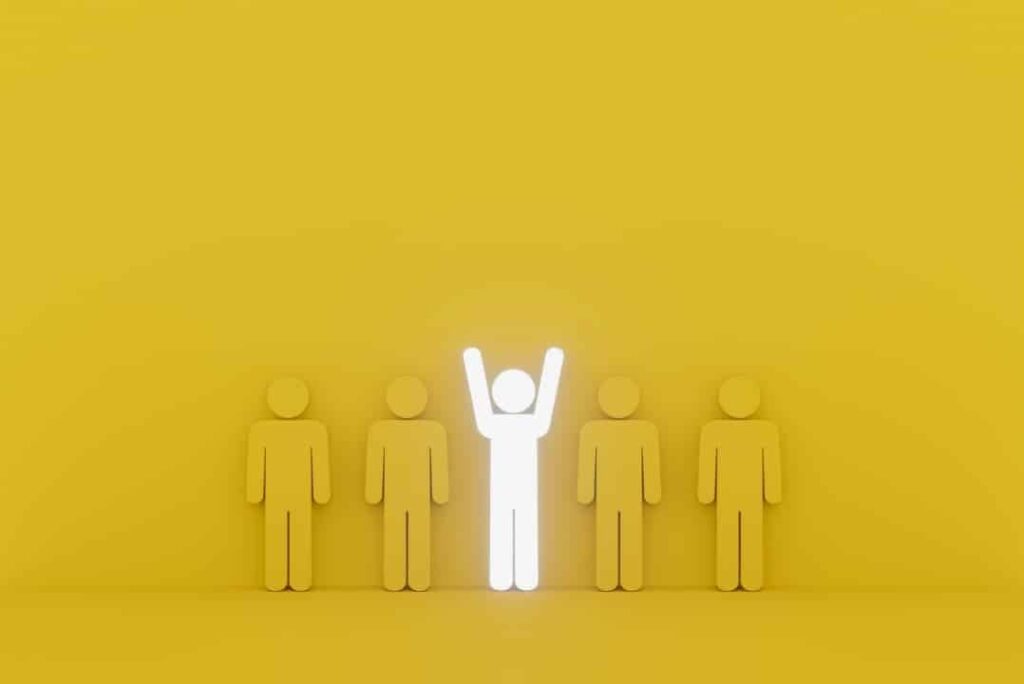
But what struck me about it was that he’s got fans who’ve probably seen him at 100 concerts, so when you walk in the door, they give you a glow stick, one of the glow sticks. Then, there’s a real structure to the performance. It works because when he sings a fast song, everybody in the audience stands up and sings it with him. When it’s a slow song, you sit down and listen to him, and he’s got this completely worked-out relationship with his audiences. What an amazing trick he does. I hadn’t paid attention to his music. But I recognize the music. I’ve heard the music. I just didn’t know it was Barry Manilow.
One of the things that struck me is just this amazing oneness about the audience. You know, both their reason for being there. There was an oneness, their participation in the songs and everything. I’ve said that even though we’re individuals, we’re very complicated and complex, and you could study one human being forever. You wouldn’t get to the bottom of what makes that person unique. At certain moments, we have this ability to join in with other human beings as if we’re one entity.
I think of starling murmuration, where it’s a flock that is so perfectly in unison. It’s a beauty to watch.
It’s a hard thing for people to believe that you aren’t getting anywhere because everything you’re grasping simply acquaints you with the things that you don’t know about what you’re doing.
Synchronicity is more explainable than it’s a mysterious thing. It’s just organisms getting used to each other over a long period of time. But you see it in traffic patterns. You have an amazingly busy, open space like it’s a marketplace or something. Thousands of human beings are there, but there are no collisions. One day, we were on the freeway that took us about 15 or 20 minutes from our office to our home.
I was just sitting there saying, “It’s amazing.” Hundreds of cars go both ways, and I bet people aren’t giving much thought to what they’re doing. You’ve probably had the experience of driving from here to here, and you were not conscious that you were driving. We had built it into our habits and automatic systems, and the other drivers weren’t thinking that much, but we had adjusted ourselves to other people’s behavior. I don’t think that’s mystical.
There was a master brain that controlled the birds, but it was a series of rules. The birds learned about the birds in front of them, the two birds on either side and the two birds above and below. And if that bird does this, you do it, and they just do it. But it happens fast—very fast. As we mentioned before, speed has magic to it.
But then these things are incredible coincidences, and that’s really what I understand synchronicity to be, is that the outer world and the inner world meet. It’s like you’re thinking about somebody and haven’t spoken to that person for 20 years. As you’re thinking about them, they call you.
I believe in radio waves.
So, do you know the story of how Carl came about to write a book about synchronicity and do all that research? You know how it all started? Let me tell you how he came about writing about synchronicity and doing all the research on it. He was in his office with a client doing an analysis on them as a woman. She was doing a dream recall. She was talking about a gold scarab beetle necklace that was significant in this dream. And as she’s recalling that, there’s this tap on the window, and it’s three stories up. So, who’s tapping on the window? There weren’t any trees with branches nearby either. It was very incessant. It was insistent, really wanting to get his attention. So he goes to the window and opens it, and guess what?
Flies in a bird with a necklace.
We’re all born unequally. Each person has unique talents, interests, and preoccupations.
That’d be funny. But no, it was a scarab beetle. He thought, “Well, this isn’t by chance. There’s something very interesting going on here.” He was able to catch it, and he presented it to the woman as “Here’s your scarab beetle.” She was surprised, and certainly made an impact on her life. But, of course, it also made a lasting impact on Carl Jung. That started him on that whole journey of documenting synchronicities, coining the term and then finding real data and analysis of this concept.
To the central concept that we have in Strategic Coach of unique ability, it was very clear to me from reading Jung that he had this ability to access his subconscious much better than other people. We’re all born unequally. We have talents, we have interests, and we have preoccupations that are unique to the individual. There were some science fiction writers. He said that reality and the universe are not strangers to what we imagine; they’re strangers to what we can actually imagine. They’re beyond imagination. I sense that there’s a constant about what we know and what we don’t know.
Einstein was good at coming up with very simple models explaining profound factors. One of the reasons was that he was a patent clerk. When he was paving his way through university in Germany, he would instantly grasp what the patent did, but he thought it was poorly communicated. He’d come up with little analogies to pass along with the patent. He had a very high record of success with the patents because he instantly grasped them technologically and scientifically. But he says you have to tell a story. They’re here to get it across. It’s not completely obvious what it is. He says, “If you think of a golf ball, a golf ball, the inside of it is everything we know, but the outside is connected to everything we don’t know.”
And then he says, “Take a baseball, much bigger than a golf ball, inside everything we know, surface area, what we don’t know.” He says, “It doesn’t matter how much we know. The amount we don’t know keeps expanding at the same pace.” I think it’s hard for people to do individually, especially in professions, to believe that, in a certain sense, you aren’t getting anywhere because everything you’re grasping now simply acquaints you with the things you don’t know about what you’re doing. And I think we like stories with a beginning, middle, and end. But in the story of humanity, I think we don’t know where the beginning, the middle, or the end is.
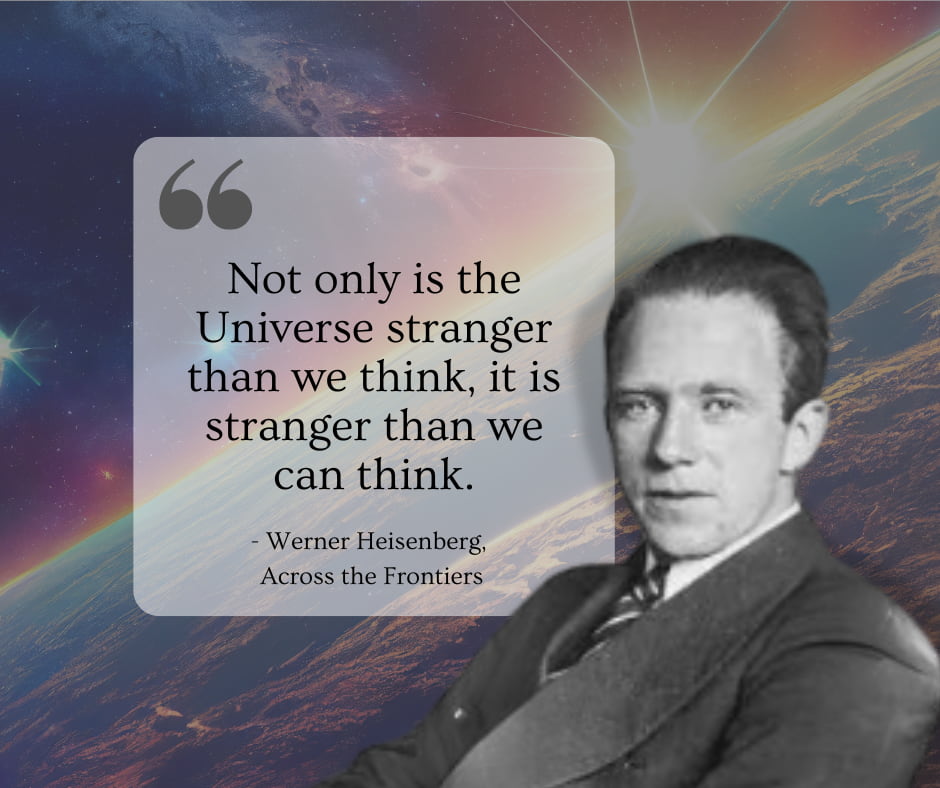
Werner Heisenberg came up with that quote you mentioned earlier. Not only is the universe stranger than we think, but it is stranger than we can think.
You have a quote engine there. I can tell.
I’m pretty good at searching.
So tell me about searching. Definitely, a search starts because I sense you’re a philosopher.
I am. What excites me is the belief and understanding that we’re accessing the universal Google just by thinking and being conscious, so that universal intelligence. I remember this little scene from a show on Netflix with a famous psychic. It’s Life After Death, a documentary. This famous psychic, Tyler Henry, is not able to think of the word. I watch this happening, and I think he will ask because he’s psychic, right? The word is on the tip of his tongue, but he can’t think of it. To this day, I know that word now because I accessed it. I just asked for the answer; it’s eloped.
Some people say that their memory gets worse over time, and that becomes a self-fulfilling prophecy for me. I recognize that I don’t have to retain memories; I can just access them. This one profound moment that really made a huge difference in my life was nothing too long after I did 40 Years of Zen of Dave Asprey. Have you done it?
No, I haven’t.
That’s really cool.
I know Dave.
That’s a really cool week-long program. You’re hooked up to all these wires and getting a lot of neurofeedback. So your brain is learning at an unconscious level, and you’re getting into more synchronous states between the hemispheres of the brain. You’re getting into more flow states, into more alpha and theta, and sometimes even gamma brainwave states. I had this incredible experience of remembering a beautiful memory from my childhood. I had not remembered since childhood, and I was not expecting that.
And childhood was quite difficult. There’s a movie in that, not a childhood, that I have a lot of fond memories about. So it was quite a gift to get that. Fast forward some months, I’m driving in my car, and my family’s in the car: my wife, my son, my mother-in-law, and my sister-in-law, they’re all asleep. And so I can’t put on a podcast or music. And so I start talking to God and conversing with God, and I ask at some point, “Can I have some more memories like I had at 40 Years of Zen—more positive memories of my childhood?” Because I had very, very few and easily ten times the number of incredible positive memories I got at 40 Years of Zen flowed in. They just got downloaded into me. It was incredible.
It’s like we’re accessing that universal intelligence, that universal Google infinite intelligence, and we’re the dumb terminal. And we give so much emphasis to the brain and brain chemistry and the structures and so forth. I’ve gone to Amen Clinics, I’ve got the spec scans and all that sort of stuff. I’ve done a lot of the biohacking things, not just 40 Years of Zen and Amen Clinics. I do health, nucleus and stem cell therapy with Dave Asprey’s stem cell doctor, Dr. Harry. It’s just I love that stuff. But this is, for me, the most profound thing.
Humans are the prompting species.
Well, it certainly relates to what you do for your profession and occupation. I’m interested because I don’t find too many differences between my interactions with AI and my lack of knowledge of 25 different apps. I find perplexity very satisfying because the answers that come back are very useful. I’ve developed a particular format. Give me the ten main reasons why such and such happens. For example, because we’re in election season, and I just said, because everybody’s saying, we’re going to have a third party that comes along in the US elections. That’s happened.
There have been third parties that caused one of the major parties to lose because they took away votes on one side of the spectrum, and consequently, the other side won. But I just asked why there are only two major political parties in the country. That’s been true right since the beginning. The parties have changed, and some parties have fallen apart and been replaced by another, but there are only two. When you get to the election, and they’ve got ten reasons why and everything like that, and the whole point, they give you their source with each one. So, if you want to read the source, they can do it. But it was my question. It was my prompt, and we’re the prompters. Humans are the prompting species.
I mean, you’re talking to God. God’s been there, ready for whatever it is. I find God a comfortable concept. I have a good relationship with God. We’re both busy. We’ll compare notes later. But asking your brain to find something is a very great skill.
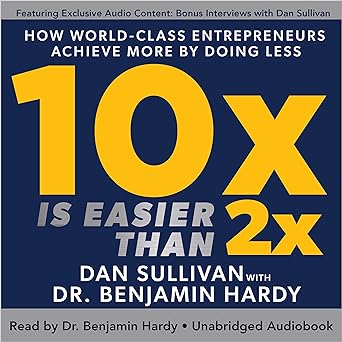
It’s a marvelous skill. And I, too, have not done what you did. I didn’t have an example, but I wrote a lot. I’m a very prolific writer. I’m on my 55th book right now. They are not big books, but kind of very concise. One idea, books, and I’ll do some work, and then I’ll do what we have. A little impact filter is a major tool in coach, but there’s a small version of it, which you filled in for the podcast today. And what I’ll do is say, “Tomorrow morning when I get up, everything’s going to be solved about this chapter. This is going to happen.” Then I go to bed. I get up in the next morning and everything is just the way I said it was going to be. The main problem is that we’re not very good at communicating with ourselves or even telling the truth to ourselves.
I love the quote you came up with that. “All progress begins by telling the truth.”
That’s not mine. That’s Bill Wilson. I’m very strict about who said what.
That’s important. That’s integrity. So who said that?
Bill Wilson was one of the co-founders of Alcoholics Anonymous. That was a central belief. All progress starts by telling the truth. The reason why you’re suffering from this addiction is because you’re not telling the truth. To free yourself from the addiction, start telling the truth. It’s all lies. All addictions really come from lying.
Is there a correlation with procrastination? Because I know you’ve also `written and talked about procrastination.
I have a very good friend, Dean Jackson. He’s a marvelous conversational partner, and he’s innovative. I call him the marketing Buddha. He seems like Buddha. He just ponders, and then he’ll deliver some blazing insight. But I was thinking about procrastination because it’s generally considered a bad thing and shameful by human beings. They’ll confess to a serial murder before they’ll confess to procrastination.
Technology isn't the only factor shaping our future; politics, international trade, and security also play crucial roles. Share on XI said, “How can something like this that humans do be bad?” I just pondered my mind. I said, “There must be some sensible reason why we procrastinate.” And I’m sure there are many different reasons why we procrastinate. But I think you get excited about the particular line of thinking I was saying. Procrastination is usually related to something that will happen in the future. You know, it’s an achievement, or it’s a goal, or it’s a result of the achievement. And there’s part of you that’s excited about it, but when you go to take action on it, you’re not excited about it, so you’re stuck, delayed. I was telling Dean about this.
He lives in Florida now. He lives in Orlando, but before COVID-19 in large sections, he lived in Toronto, and we would meet at some restaurants on Saturdays. I said, “You know, I’ve been thinking about something. I think the reason we procrastinate is the thing we’re thinking about is really good, and it’s very good, but we’re not the ones to do it.” Therefore, we’re saying it’s good. It’ll be great when it’s achieved, but we’re not the ones to do it, and therefore it has to be. And that’s where who, not how, came from the Who Not How concept.
It is an amazing book.
It’s a great goal, but I’m not the one who’s going to actually do this. That’s been a blockbuster concept for a strategic Who Not How. Do you have someone who can actually do that? It takes off the pressure for everybody to be good at everything that you’re supposed to be doing everything. That’s a real cause for all sorts of mental difficulties. The notion that you’re supposed to be good at everything and that you’re the person who’s supposed to do everything.

It can be overwhelming to think that you must be the linchpin in your business, for example. Then, you have a concept of the rugged individualist versus somebody who can either simplify or multiply and have that self-managing organization or business. You can’t run that as a rugged individualist.
It’s really interesting. I just had an achievement that happened, a company achievement that just happened. That is the best example of what you just said, and that there were other skills, other people’s capabilities got into it. So we did our first conference outside of the company for 35 years. Everything we’ve done is just a workshop where it says, “Something inside.” But here, we created a conference in Nashville, Tennessee, and they have this marvelous venue right in the middle of the city called Music City Center. We had two team members I worked with a lot, and they said, “We’re going to create a conference.”
It’s about time. After four decades of Strategic Coach members, we have 23,000. That’s the number of people who have worked as coaches for at least a year. I said we would put out the word that we would have this conference. It was about a year in the future. And they did. It was a huge success. We had about 350.
I think the reason we procrastinate is that we think about what is really good, but we’re not the ones who should do it.
They were late with their marketing, and people’s schedules were filled. But it was spectacular. I mean, we got amazing feedback from everybody who came. When we finished and had a big party at the end of the final day, Nashville knew how to put on parties. I reflected that I had spent 5 hours on that entire conference within a year of its formation.
When I went to the conference, I participated, just like the paying guests; I just went from session to session and had to choose my sessions and everything else. And yet the impact of that event on the confidence of the company, the confidence of our strategic coach community, was profound, and it was two people. They enlisted the skills of an event company that could negotiate everything necessary for a grade two-day conference. And that’s a real deal of mine, as our company is capable of great achievements that I’m not involved in.
Well, you’re like the alchemist who brings together all the essential ingredients and sees the vision, and everybody around you makes that happen. That’s pretty cool.
You want to do more of that when you’re 80 than when you’re 70. I think it was at 70. It was ten years ago. I recognize that I’m going to be responsible for far more achievements in the future than I have been, but I’m not going to be very involved in the achievement’s actual doing. It will happen through other people, and that’s a way of defeating the idea that you should be retiring because you’re not doing very much anymore. You’re doing amazing things. It doesn’t take the form of what you did at the beginning of your career.
When you did everything, you were very active, and you did this, and you did this. Some of it is great, and some of it, you shouldn’t have been involved with it. I’ve gotten to the point now where it’s all teamwork, it’s all teamwork, and my job is to make sure that people are clear about what they’re doing.
Success in business often comes from knowing when to step back and let others shine. Sometimes, achieving through others is the greatest achievement. Share on XThat’s awesome. And congratulations to you and your team for achieving that milestone.
They’re going to do another one twice as big two years from now. That was funny because it was my birthday, so it coincided pretty close to my birthday, so part of the reason for the party was my birthday. Near the end of the evening, they thrust a microphone in my hand and said, you know, say something. I got up, and I said, this has just been an amazing experience the last two days, and we didn’t have any plans beyond this conference. But I’m saying right now that we’re going to have another conference, but it’s going to be two years from now, and it’s going to be twice as big. And the whole room went great. This was a very alcohol-enabled experience for everybody, but that was important for me to do. That little 15-minute statement galvanized the whole company. Two years from now, they’re all taken up, but it’s probably going to be in Orlando.
That’s a great forcing function. Announce to all your Facebook friends that you will run a marathon. It’s like, you can’t weasel out of that one.
You have to declare yourself. I was starting to ask you a question, but you very skillfully shifted the attention. But where did your interest in search come from? There’s obviously a whole bunch of skills that developed before they showed up as the technological ones in your understanding of the technology. But what would you say if you had to have three events that clearly got you to where you are right now? What would you say they were before you actually started doing this?
As far as search, it was writing my bulletin board system, or BBS, as a kid, and it was basic from the ground up. I worked a lot of late nights to do that, and then I ran it on my home phone line, which really irritated my mother.
And where was this?
This is in Toledo, Ohio. Many years later, I’m studying biochemistry in a PhD program, and I attend the 2nd International Worldwide Web Conference. One of the people I get to chat with is Rob McCool. He was the creator of Netscape Server and Apache. Apache runs most of the web servers for the 2nd International Worldwide Web Conference on the planet. Now, between that and nginx. That was the first time I heard of Netscape because everyone was still using the Mosaic browser. This was 1994.
That was quite a profound moment. I decided, “What am I doing studying for a PhD? I’m going to become a professor. This is not the track I want.”
Where was the university?
University of Wisconsin.
That’s where Jeff Madoff graduated.
He’s not just a mutual friend. He’s also a past guest. I was profoundly affected by meeting Rob and decided I would drop out of my PhD. A couple of months later, I did. I’d say there was a realization. In ‘95 or ‘96, I became pretty adept at understanding just how to reverse engineer things. Google didn’t exist yet. It was Altavista and Lycos and Webcrawler and Infoseek and all that.
I just found it ridiculous to create these separate pages for each search engine to optimize for each engine’s unique algorithm. That was a sketchy thing, a waste of time and not really above board. Google came out, and it was markedly better than anything else. “I’m going to reverse-engineer this. I’m going to figure this out. I want to know Google better than Google engineers know it.”
Over the next few years, we went from being more of a web design and development agency and marketing agency to really specializing in SEO, and that’s how I ended up here.
Since many of my clients are going to be watching this, I’m going to ask you two questions. They actually go together: Who’s your favorite type of check writer client who avails themselves of your skill, and what’s your favorite type of project for them?
I will preface this by saying I love your answer to this first question—slow learners with money.
Committed slow learners with cash. I love that.
But for me, it’s people making a difference in the world or revealing light in it. I used to be focused on the big brands. I’d get Chanel, Sony, Zappos, and Volvo as clients, and that was my ego. Now, it’s the changemakers and the light bearers in the world, the folks who are making the world a better place. And they could be small. It could be a seven-figure business and not a billion-dollar business. What was your second question?
What’s your favorite type of project for your favorite type of people?
The human brain responds to two things: an event that happens, and there is clear proof whether it happened or not, and the other thing is that it’s got a number attached to it to measure the result.
My favorite type of project is one where I have to reverse engineer something or figure something out. It is an interesting challenge that has a significant payoff for the client and for the world.
And how would you measure? One of the things I’m really big on is the human brain responds to two things. It responds to an event that happens, and there is clear proof that it hasn’t happened. And then there’s clear proof that it had happened. And the other thing is that it’s got a number attached to it that’s a better number. When you measure the result, it’s a better number than you had before. I tell people that if you have goals and you don’t have an event and you don’t have a number, it’s just a bumper sticker for the brain. It’s just filtered through.
You’re probably looking at responses from a search here. Here’s what it meant, but you have to be clear how we’re going to know. What we’ve undertaken has been successful. What will you be able to do after we get the result that you can’t do right now?
The most important thing to understand when going into an engagement is the metric for success for that particular client. One of my clients is Jay Abraham’s cousin, who has a law firm in Indianapolis. For that client, know that the needle-moving number that matters is the number of signed cases per month. If we hit a certain number, that’s a good result; he’s happy. If we hit an outstanding number, I know what that is, too. Then he’s over the moon happy.
Then there’s this pie in the sky. There was one moment when I actually had an interview with him on my other show on Marketing Speak, which is all kinds of SEO and online marketing topics. So I interviewed Brandon on that show, and he shared how we had already set a record for the number of signed cases in their 40-some-year history ten months into the engagement. Because his father actually founded the firm in the sixties or something. I forget when exactly, but it was many decades of not hitting the number we hit the month we recorded that episode. That was really cool. Each client is different, so if it’s an e-commerce site, a services company, a news site, or a media site, they’re all different metrics. Also, the different stakeholders that I’m working with will have different numbers. Somebody in the marketing department will have different goals and objectives.
You essentially create a new algorithm from your reverse engineering. I’m starting to learn what algorithms are because the patent bureau is very, very partial to algorithms that if you do this and you do this and you do this, you get this result right.
Something very meta is happening right now in history, where the algorithms are writing the algorithms. It’s like that whole thing goes back to an earlier concept we talked about at the beginning of this episode, which was being a good thinker and being conscious or aware of your consciousness. This is related to that, too.
Our brain is something that takes experience and mysteriously creates meaning.
I’ve been talking about AI with a lot of different people who have varying degrees of skill and knowledge about AI. I think the greatest breakthroughs that we’re going to experience over the next quarter century are really how the brain actually works and how humans work. It’s not an information process, it’s something else. It’s a meaning-maker. Our brain takes experience and mysteriously creates meaning for the person doing the thinking, but also meaning for other people when they hear it. This is inexhaustible. This is endless. We may be at the start of a great philosophical age. What I see as a sign of this is that technology, obviously, and certain types of technology are speeding up.
But I got a sense that from a cultural standpoint and how people live their lives, I’m sensing a profound sense. We’d really like to slow things down. And I think part of it is the falling birth rate around the planet. Most of the developed countries 40 years ago just basically stopped having babies. The settler nations, which are Canada, the United States, Australia, and New Zealand, as well as all British, you know, former British colonies, can control the population through immigration, legal or illegal.
They can always keep their populations where they want them. But the vast majority of people who are very ethnocentric societies don’t give membership, citizenship, or membership to people who are immigrants. It could take generations for you to do this. But I got a sense that all the predictions of things constantly speed up, and everything else is controlled by human purpose. I want to slow things down a bit, you know, and everything else. And the reason we want to slow things down is that we can think about them.
Well, and also enjoy them. So there’s the slow food movement. There are all these things where if you really savor the moment, then you’re in the moment. You’re in the eternal now, not living in the past, present, or future. You’re just in the now. That’s all that there is.
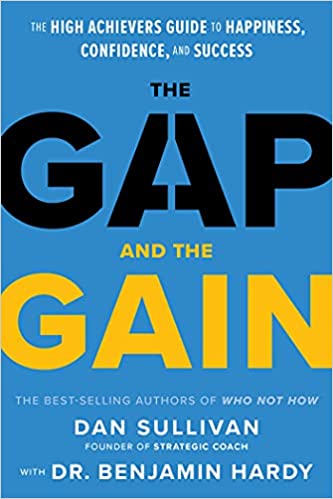
And friendship goes along. You do this with your friends, and you enjoy moments with your friends in a flowing state.
Let’s say you’re skiing or something like that. You’re also in the moment right then and there.
I think COVID gave us a little sample of this. They’re having trouble filling jobs. And you gave some people two years to think about their jobs. And they came up with the verdict that it was a really sh*tty job. It was a really sh*tty organization. It was really a terrible commute, as was everything else. “Why was I doing that?” But things were too fast to even think about it.
And now that we’re more unified and connected, we can influence each other’s behavior more than we could previously.
We live in a more connected world now. This was fabulous. I really enjoyed our conversation.
I certainly would like to do this again.
All right, perfect. I only covered a small fraction of my questions for you, so let’s do it. Awesome. And for our listener who is interested in strategic coaching and all the incredible thinking tools for identifying their unique ability, really tuning in to that, and utilizing everyone else’s unique ability in their organizations, where should we send them?
We have a great website, and it’s filled with videos and audio, and there are explanations of how the program works and where you can say, I’d really like to have someone talk to me about this and everything else. We’re a successful company. We’re 35 years now. We had two flat years and 33 profitable years. So it’s worked well. I’m 80 and making plans for our growth until I reach 100. I’m in this for a bit.
You’re in it for the long run.
Health is good. I pay attention to the right tests, and everything’s good. But Stephan, a real joy.
Likewise.
Anyway, thanks for reaching out.
Okay, thank you, Dan. And thank you, listener. We’ll catch you on the next episode. Have a fantastic week. In the meantime, I’m your host, Stephan Spencer, signing off.
Important Links
Connect with Dan Sullivan
Books
Businesses/Organizations
Film
People
Previous Get Yourself Optimized Episodes
Previous Marketing Speak Episodes

